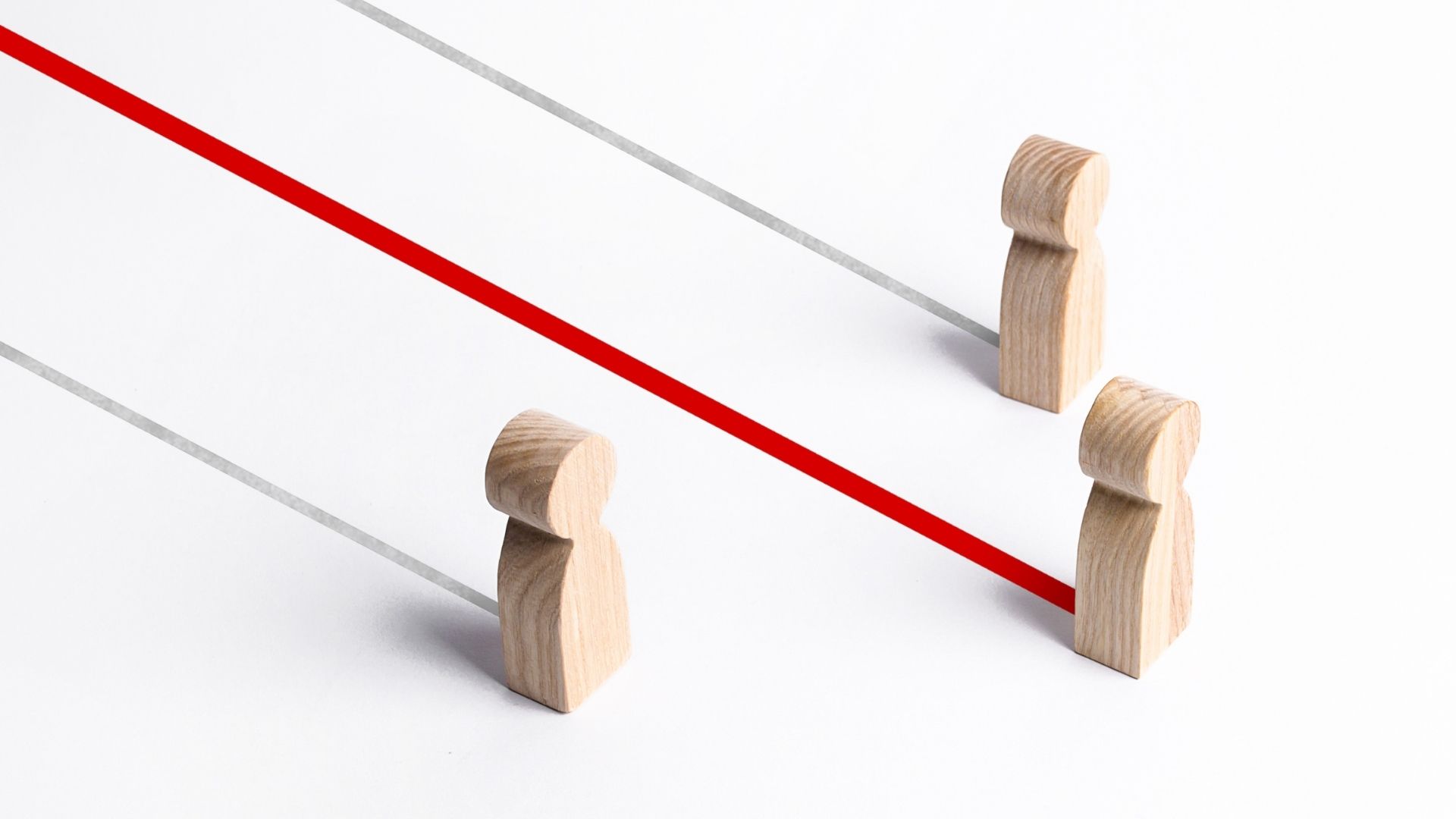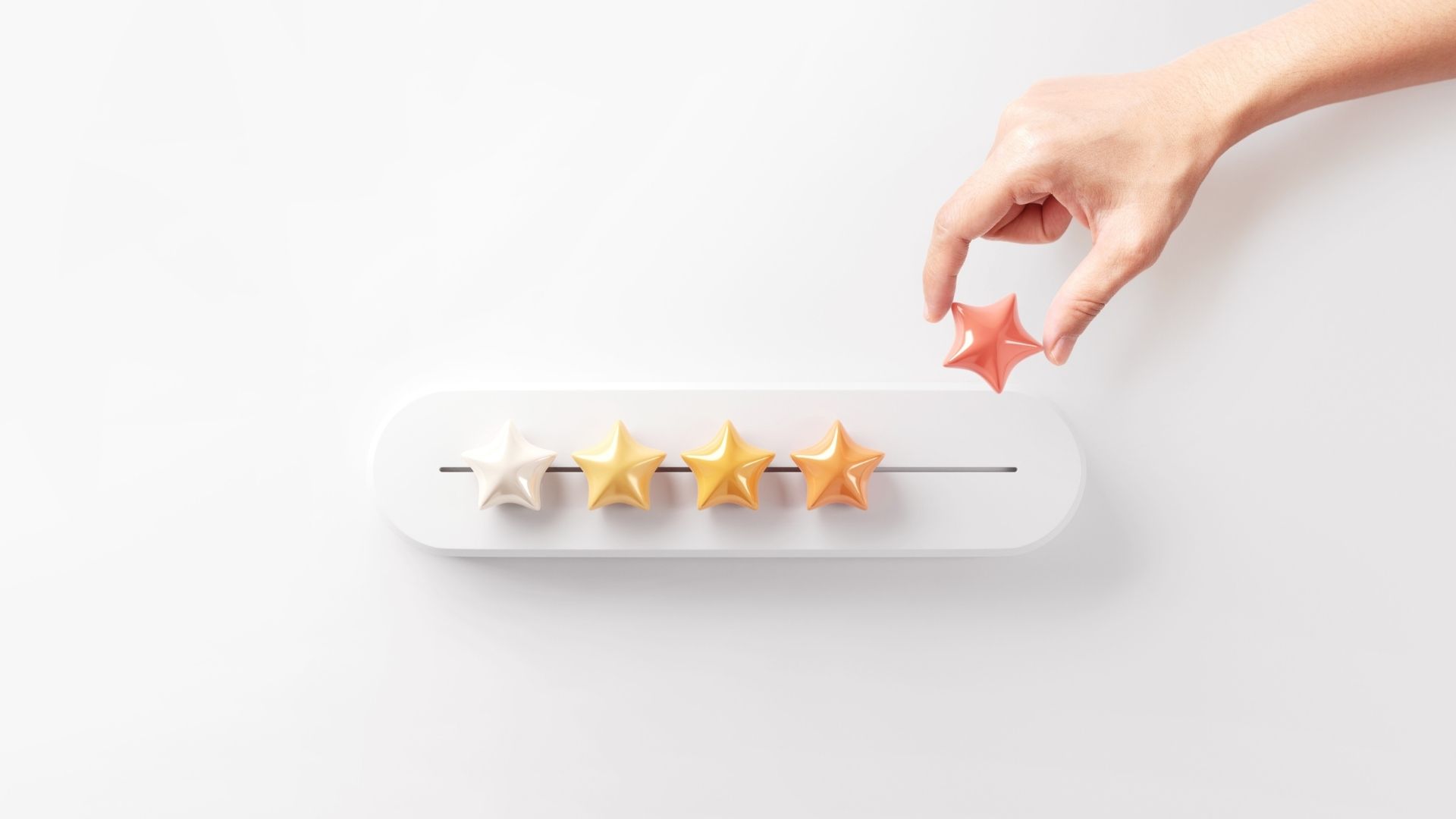Across every industry, a new kind of visibility gap is forming. The companies showing up in AI answers, dominating organic search, and becoming the default go-to sources aren’t always the ones with the best products.
They understood how modern authority works, and they moved first.
Your competitors aren’t just outranking you on Google anymore. They’re getting recommended by ChatGPT, featured in Perplexity answers, and showing up everywhere your customers look for advice. Meanwhile, your website sits there. Invisible. Despite having better products, deeper expertise, and more experience.
Here’s the thing: It’s not about your content. It’s not about your keywords. It’s about authority, and your competitors figured out how to build it while you were focused on other things.
Website authority is your perceived trustworthiness and credibility based on how others reference, cite, and link to your content online.
Authority is the core outcome of off-site SEO; everything that happens beyond your website that builds your reputation, credibility, and trust in the eyes of search engines and AI systems.
Without it, you’re invisible to both search engines and AI systems. With it, you become the default answer.

What authority means today (it’s not what you think)
Authority used to be simple. Get links from other websites. Watch your rankings climb. Done.
That game has changed. Authority now operates on multiple levels:
Google still uses links as trust signals. But it’s not about quantity anymore. It’s about quality, relevance, and what those links actually say about your expertise.
AI systems favor sites with strong citation networks. When ChatGPT answers questions about your industry, it mimics academic citation patterns, preferring sources that are frequently referenced by other trusted sources. Perplexity explicitly shows which sites it pulls from, and those sites almost always have dense networks of quality backlinks.
In this context, your citation network isn’t just your backlink profile; it’s the pattern of how, where, and how often you’re referenced across trusted sites, publications, and platforms.
Your backlink profile is now your citation network. Every quality link is a vote of confidence that both search engines and AI systems recognize. And because search engines and AI models assess trust at the domain level, a single high-authority page won’t move the needle unless your overall domain is also seen as credible. LLMs specifically weight sources based on:
- Citation density (how often you’re referenced)
- Source credibility (who’s doing the referencing)
- Topical relevance (context of the citations)
- Recency (fresh citations matter more)
Think about it. When someone asks ChatGPT about the best solutions in your industry, whose content does it reference? When Google shows featured snippets for your key terms, whose site appears?
Not yours. And you wonder why lead flow feels harder every year.


The compound advantage your competitors discovered
Here’s what successful companies figured out: authority compounds across every channel.
Strong link profile → Higher rankings → More citations → AI recommendations → More organic links → Even higher authority
It’s a flywheel. Once it starts spinning, momentum builds naturally.
Take a real example: We worked with a gold company that had absolutely no online authority. Zero domain rating. Invisible in search. Through consistent link building and strategic PR outreach, working with a company that does genuinely good work in their communities, we helped them transform from nothing to a 10-figure company in just a few years.
The key? We didn’t just build links. We built a citation network around their actual expertise and social impact. Industry publications started referencing their work. News outlets covered their community initiatives. Investment sites cited their growth. Each citation made the next one easier to earn, creating a compound effect that transformed their business.
Your competitors understood this early. While you were perfecting your product, they were building relationships. While you were tweaking your website, they were earning mentions. While you were writing blog posts nobody found, they were becoming the default answer.
Why most websites have zero authority
Let me paint you a picture of what zero authority looks like:
You publish great content. Nobody links to it. Google sees no external validation. Your rankings stay flat. AI systems never reference you. Prospects never find you.
It’s not that your content is bad. It’s that nobody knows it exists.
Authority requires external validation. Google’s entire algorithm is built on this principle: if other trusted sites reference you, you must be worth trusting. AI systems work the same way. They learned from the web’s citation patterns.
Most businesses think they can SEO their way to visibility with keywords and content alone. That’s like trying to become influential by talking to yourself in a room.
Stop it.
Real authority comes from what others say about you, not what you say about yourself.

How to diagnose your authority problem
Let’s get specific about whether you have an authority problem.
Quantitative indicators
Domain metrics check: Use Ahrefs, Moz, or SEMrush to check your domain rating (DR) or domain authority (DA).
- Under 20: You’re essentially invisible
- 20-30: Minimal authority, struggling for competitive terms
- 30-50: Moderate authority, can compete in less competitive spaces
- 50+: Strong authority, able to rank for competitive terms
Competitive gap analysis: List your top 5 competitors and check their DR/DA. If they’re 20+ points higher, that’s your visibility gap quantified.
Referral traffic percentage: Check Google Analytics. If less than 10% of your traffic comes from other websites, you’re not part of the conversation.
AI visibility test: Search for your expertise on ChatGPT and Perplexity. Count how many times competitors are mentioned versus you.
Qualitative red flags
The education burden: Every sales call requires explaining who you are and why you matter. Prospects have zero context.
Content echo chamber: Your best content gets no engagement, shares, or natural links. It might as well not exist.
Paid traffic dependency: Turn off ads and leads disappear. No organic momentum.
Talent loss to “brands”: Even recruiting suffers when candidates choose recognized competitors over your unknown company.
Stuck in ranking purgatory: Page 2 or 3 for high-value keywords, despite clean on-page SEO and regular content.
If you’re seeing multiple red flags in both categories, you’ve identified the core problem holding your business back.


What real authority building looks like
Building authority isn’t about gaming the system. It’s about becoming genuinely noteworthy.
Here’s what actually works:
Strategic relationship building, not mass outreach. The companies winning at authority focus on building real relationships with industry peers, complementary businesses, and media contacts. They contribute genuine value before asking for anything.
Creating citation-worthy resources. Instead of churning out blog posts, they create definitive guides, original research, and tools people actually reference. Something worth linking to.
Consistent brand visibility across channels. They show up on podcasts, contribute to industry publications, speak at events. Each appearance builds recognition and often results in natural citations.
Proactive PR and thought leadership. They don’t wait to be discovered. They actively position executives as experts, respond to journalist queries, and insert themselves into industry conversations.
The key pattern? None of this is about “link building” as a tactic. It’s about building a brand worth referencing.
The AI visibility factor nobody’s talking about
Here’s where it gets interesting for 2025 and beyond.
AI systems don’t browse the web like humans. They analyze patterns of trust and citation across millions of sources. When Perplexity decides which sources to cite, it looks for sites with:
- Structured data that’s easy to parse (proper schema markup)
- Consistent citations across multiple authoritative sources (not just one-off mentions)
- Clear topical expertise demonstrated through focused content
- Cross-platform authority signals (mentioned on social, news, niche sites)
ChatGPT works similarly but with an academic twist. It weighs sources like a research paper would, favoring frequently cited authorities over primary sources. This is why Wikipedia dominates ChatGPT responses; it’s the ultimate citation aggregator.
Bing’s AI features explicitly show source citations, making the authority gap painfully visible. When your competitor appears as a source and you don’t, every AI-assisted search is a lost opportunity.
This means your traditional SEO metrics now directly impact AI visibility. That backlink from an industry publication doesn’t just help Google rankings; it increases the chance ChatGPT references you when someone asks about your industry.
Authority in the AI era isn’t just about links. It’s about being seen as the best answer. That means creating content that earns citations across platforms, tightly aligns with clear topics, and signals topical depth through structured, semantically rich writing. You’re not just optimizing for Google crawlers anymore. You’re optimizing for language models learning who to trust.

What to do next (your authority action plan)
Here’s the reality: Building authority takes months of consistent work without early dopamine hits. You’ll feel like it’s not working in month 2. Your team will resist PR efforts if it’s outside their comfort zone. You’ll be tempted to outsource to someone promising “100 high-quality links for $1,000.”
Don’t.
Real authority building looks like this:
Week 1: Benchmark reality
- Run a full competitor authority analysis
- Document your current DR/DA and theirs
- List where they’re getting mentioned that you’re not
- Save ChatGPT/Perplexity responses about your industry
Week 2: Find your citation gaps
- Where are competitors featured that you’re not?
- What resources are they creating that earn links?
- Which relationships give them visibility?
- What makes them “citation-worthy”?
Month 1: Start building foundations
- Create one genuinely valuable resource worth citing
- Reach out to 5 industry connections (no pitches, just value)
- Set up monitoring for brand mentions and competitor activity
- Fix any basic issues preventing citation (outdated site, no expertise signals)
Warning: This is where most companies quit. No visible results yet. Internal resistance. Easier to just buy more ads.
Month 2-3: Push through the resistance
- Develop thought leadership angles unique to your expertise
- Build relationships with 2-3 industry publications
- Create a system for consistently producing citation-worthy content
- Begin selective PR and visibility efforts
Reality check: You’ll get rejections. Many rejections. Your first podcast pitch will likely fail. Your HARO responses won’t get picked. Keep going.
Month 4-6: The flywheel starts turning
- First meaningful links start appearing
- Rankings begin improving for mid-to-long-tail commercial queries
- AI systems start occasionally referencing your content
- Team sees early wins and resistance fades
This is when compound effects become visible. Every earned citation improves your credibility footprint, making future trust-building faster.
The decision that determines everything
Your competitors didn’t wait to be discovered. They made themselves impossible to ignore.
They invested in authority while you invested in features. They built relationships while you built products. They became the default answer while you wondered why nobody could find you.
The gap widens every day. AI systems are learning who to trust based on current authority signals. Google’s algorithm continues to favor established authorities. Your invisibility compounds.
Authority can still be built. The same strategies that earn links earn citations. The same moves that help with Google help with AI. The real question isn’t can you catch up, it’s whether you’ll start.
TL;DR: Website authority is the new competitive moat. It’s built through quality citations, consistent external references, and strategic content that earns trust across platforms. Companies that invest in off-site SEO and visibility, not just content, are the ones dominating search, AI results, and customer mindshare.
Ready to build real authority? We help growth-focused companies develop and execute authority-building strategies that drive both search rankings and AI visibility. Let’s talk about your competitive gaps →








